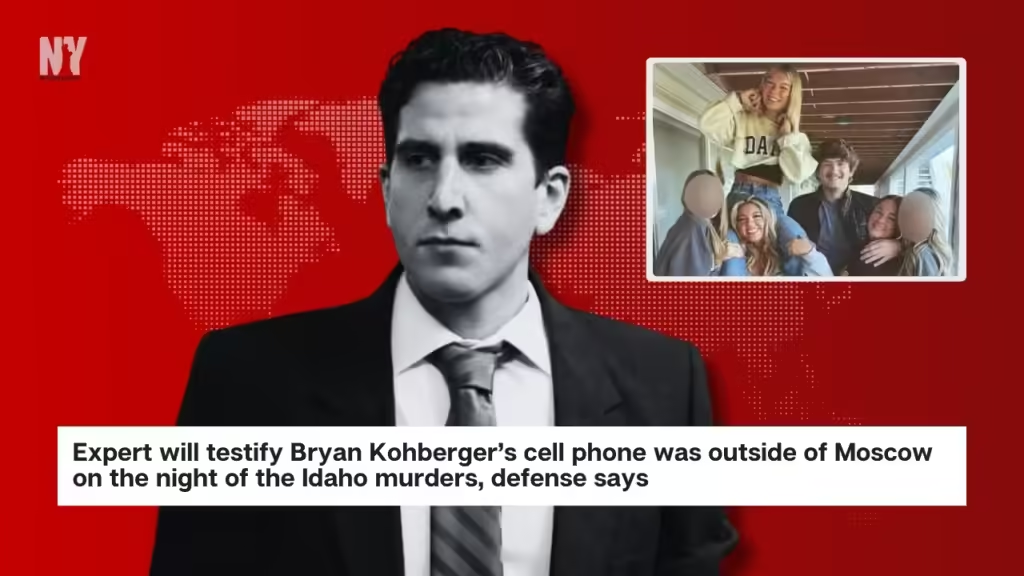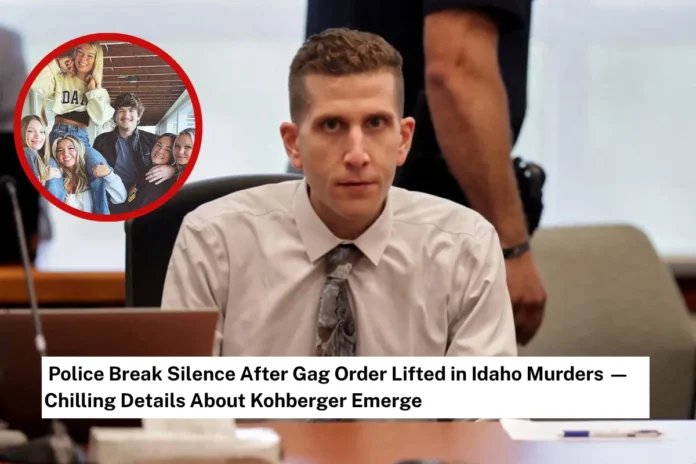The gag order of the Idaho Murders was removed by the judge just days before Kohberger‘s sentence on July 23.
Hours after Judge Steven Hippler removed the nondissemination order in the University of Idaho murder case, police are speaking out about the investigation’s progress and their conversations with confessed murderer Bryan Kohberger.
The injunction, commonly referred to as a gag order, prohibited prosecutors and police from discussing the national spotlight case.
Anthony Dahlinger, the chief of police in Moscow, told ABC News, “We’ve been focused on the victims and bringing justice for the victims.” “That was our focus … that was our mission … so that mission was accomplished.”
Dahlinger said he was unable to respond when asked if investigators were able to identify a clear motivation.
For the time being, all of the case’s sealed documents will stay sealed. According to Moscow police, a lot of information will be made public later.

“We’re committed to being transparent when we can be,” Dahlinger stated.
“We hope that not only the families, but the friends, even the Moscow community and all the communities that were affected by this, can start to heal and bring some sort of closure to this horrendous act,” Dahlinger said in reference to Kohberger’s sentencing next week.
Six days prior to Kohberger’s sentencing, Hippler decided to lift the gag order on Thursday. Kohberger will appear in court again on July 23 for his sentencing after entering a guilty plea to all counts during a change of plea hearing on July 2.
As part of the plea agreement, Kohberger will get the maximum penalty of 10 years for the burglary count and four consecutive life sentences on the four first-degree murder counts.

At the July 2 hearing, Hippler named the four students—Kaylee Goncalves, Madison Mogen, Xana Kernodle, and Kernodle’s boyfriend, Ethan Chapin—and questioned Kohberger about how he pleaded for each count of murder. Each time, Kohberger said “guilty” in a hurry.

The current police chief of Washington State University and previous police chief of Pullman, Washington, Gary Jenkins, also spoke candidly to ABC News about his personal encounters with Kohberger, a Ph.D. candidate in criminology at WSU at the time of the killings.
In April 2022, Jenkins interviewed Kohberger and four other students via Zoom for an internship, but the chief did not choose him.
“This particular position, it requires someone who can develop trust and rapport with my staff, and these are police officers,” Jenkins stated.
“He didn’t have a genuine conversational manner when speaking with [Kohberger].” I simply didn’t think he would be able to build that rapport and trust since he didn’t seem very likable.”
Jenkins claimed to have had “chills” when Kohberger’s name was mentioned during the inquiry into the triple homicide months later, on December 20, 2022.
When Jenkins stated, “The hair on the back of my neck stood up,”
Early on November 13, 2022, the college students were all fatally stabbed at the girls’ off-campus residence. After over seven weeks, Kohberger was taken into custody.

“I was absolutely familiar with his name. He added, “I had Bryan Kohberger’s resume and cover letter for the internship, and I told them that I had interviewed him.”
Jenkins added that he is aware of problems with Kohberger’s behavior and interactions with instructors and fellow students.
“There were a couple criminal justice professors who oversee that Ph.D. program who felt just like they were responsible because they made the decision to admit him to WSU,” Jenkins explained.
“I work as a law enforcement officer. I don’t know how they could have told you what was going to happen, and neither could I when I questioned him. Nevertheless, they felt a strong sense of duty and that they ought to have known.
According to Kohberger’s lawyers, they will remain silent until the punishment process is complete.
